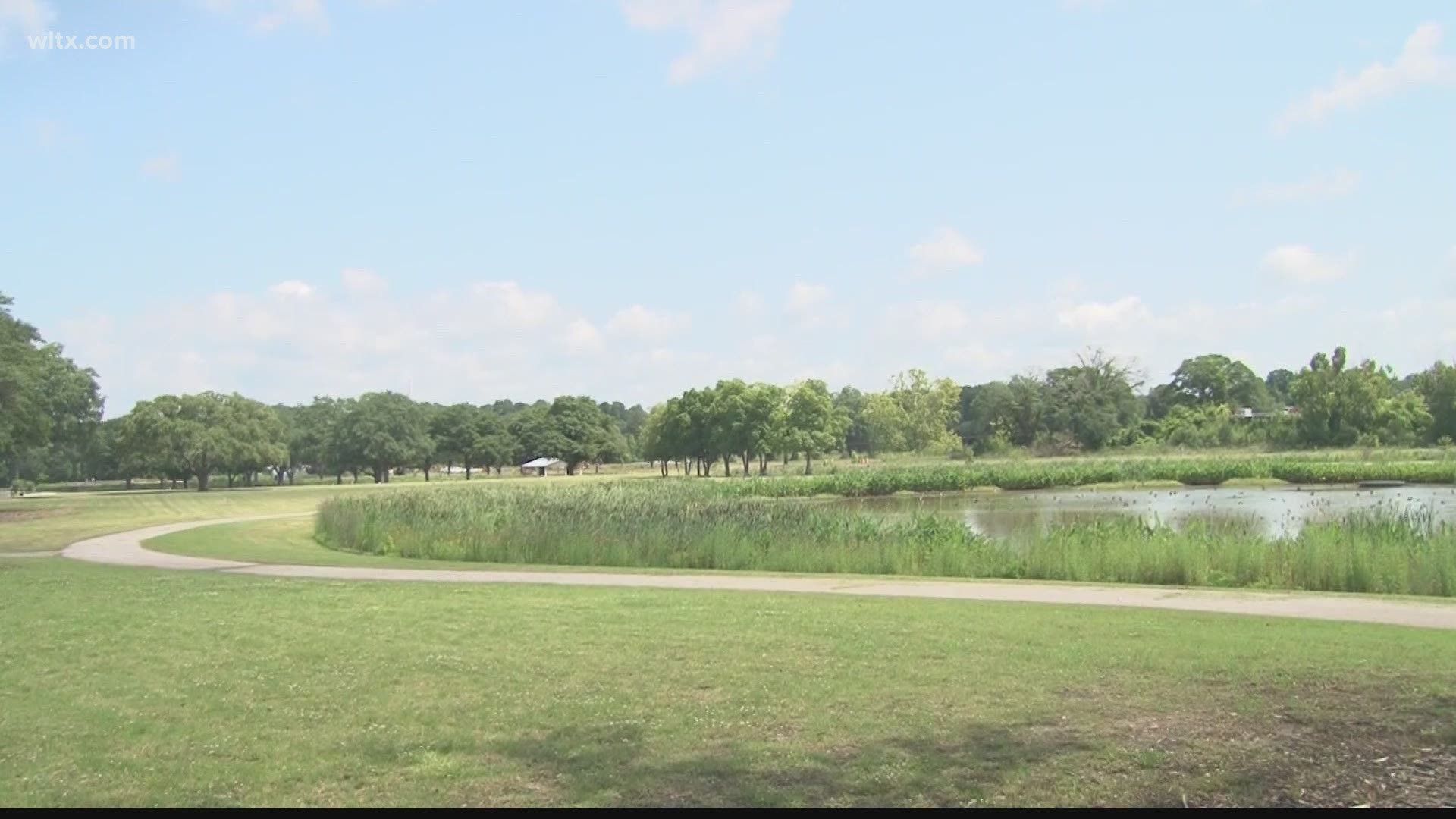COLUMBIA, S.C. — Officials from the City of Columbia held the grand opening of a 20-acre park in the Bull Street District on Monday.
The park features running and walking paths, a dog park, shelters and a natural water habitat featuring a two-acre pond.
The park is named after Page Ellington.
Ellington was a former slave, self-taught architect and a community leader that lived in the Capital city. City councilman, Edward McDowell said this is a great way to honor Ellington.
"After all of the things, vetting folks, in particular, vetting Mr. Page Ellington, we knew that this was going to be a grand city," Councilman McDowell said. "Look at it! This 20-acre park represents heritage. You could almost say this is holy ground. The ground we're standing on is holy, with Page Ellington being apart of the unique experience."
Back in April, the City Council unanimously voted to name the park after Ellington.
According to a press release from the city:
"Page Ellington born in North Carolina, joined University of South Carolina professor Richard T. Greener as a member of the Columbia Board of Health in 1875. Ellington ran for City Council and served as an election manager for Ward 4. His home still stands in the Arsenal Hill community. Ellington’s contemporaries—Black and white— recognized his skill as both a builder and self-taught architect. In 1910, The State detailed his close partnership with Dr. James W. Babcock thusly: He has assisted Dr. Babcock with all of the new buildings at the State Hospital and it will be observed that the towers all differ in appearance."
Columbia Mayor, Steve Benjamin said this park is a great place for the community to come together and relax.
"It's a place for families to gather from all across the city," Mayor Benjamin said. "The historic nature of naming is after Paige Ellington, a bricklayer and architect and artisan who helped build these buildings. An African American over 100 years ago I've been able to find that name and elevate that name, and the way that pulls together our community and elevates the stories of what seemingly ordinary people can do every single day and have done every single day here in this city. Ordinary people can do extraordinary things, and that's what we're trying to do here."

